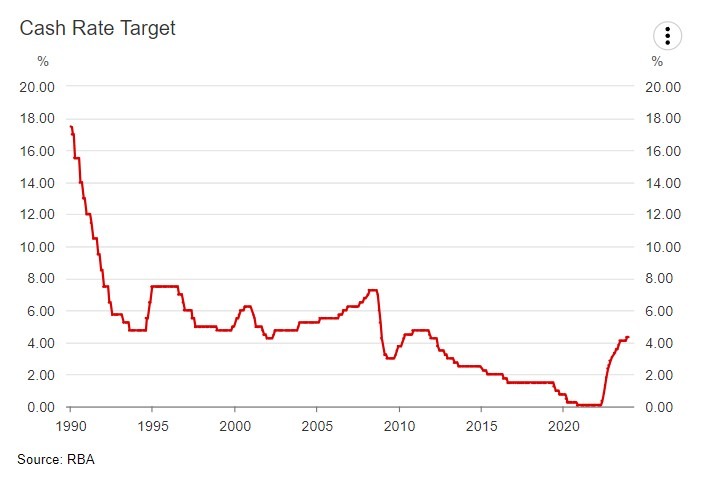Bloomberg (gated) with the report on Reserve Bank of Australia internal documents showing how rising interest rates have impacted household and businesses.
In brief:
- domestic tourism demand slipped from high levels
- consumers have continued to trade down to cheaper products, or purchased fewer items, due to cost-of-living pressures
- private sector wage growth appeared to have stabilized at “around” 4%
- community services organizations seeing ... “Cost‐of‐living pressures remain acute for their constituents”
- “More people than usual are seeking support from community services organizations, including wage earners and households with mortgages who have sought food support.”
None of this should come as a surprise. There is nothing the RBA could do about many of the factors that drove prices higher, such as supply-chain pressures and the jump in energy prices. What the RBA can do, though, is work (via higher interest rates) to pressure domestic demand lower. Which is what they've done. Its hitting some members of the community harder than others, of course.
The RBA will remain focused on driving inflation lower, its one of their only two jobs. Rates appear to be set to stay higher for longer:

RBA cash rate



